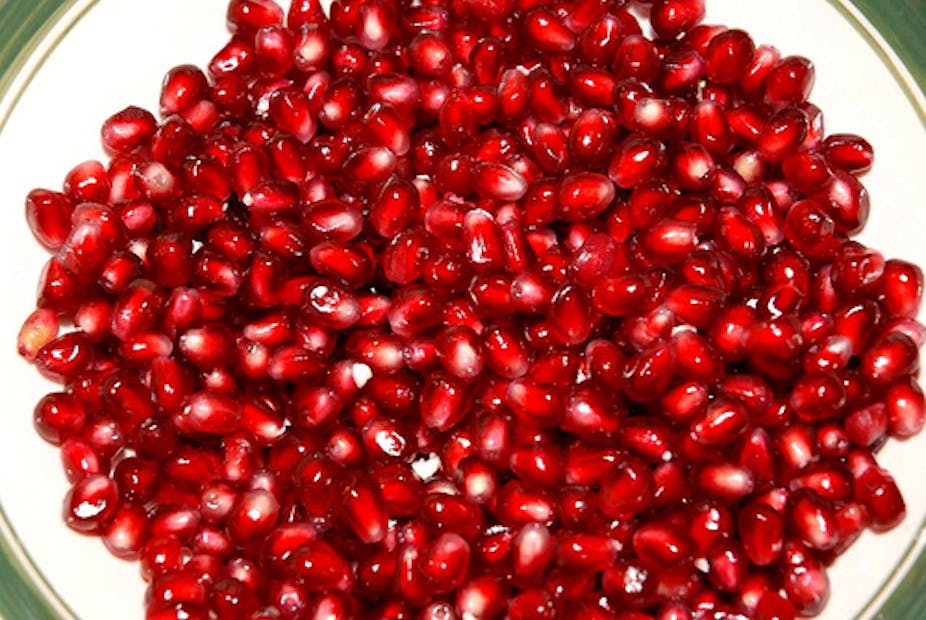As Australians’ life expectancy nudges past 80 years, it’s no surprise that we’re searching for ways to add youthfulness and vitality to our later years.
It’s a nice idea that a good dose of blueberries, pomegranates, green tea or even an antioxidant supplement could reduce the impact of ageing on the body. But does the science behind antioxidants stack up?
One of the most persuasive scientific ideas in the field is the Mitochondrial Free Radical Theory of Ageing (MFRTA), first proposed back in the 1950s, which explains the ageing process as the result of “oxidative stress”.
The chemistry is complex but it boils down to the idea that free radicals (ions with an unbalanced charge) react very readily with biological molecules and are subsequently damaged. The changes of ageing – organ deterioration, sagging skin, poorer healing, and so on – are therefore due to accumulated injury.
This theory is supported by some laboratory results, such as the observation that an animal’s life span roughly correlates with its metabolic rate (ability to expend energy) and amount of antioxidant activity in a species.
Studies have also shown that raising antioxidant levels in animals seems to increase their life span.
Limiting calorie intake has been found to reduce the production of Reactive Oxygen Species (ROS), which are the most common free radicals in the body.
It’s about at this point that the hype begins to take over from the science.
As scientists have interrogated the MFRTA over the past decade, the results have shown some gaping holes in the theory.
More detailed animal research suggests that the longest-living animals have low levels of ROS damage simply because they produce lower levels of these free radicals. In fact, the entire relationship of oxidative damage to longevity has also been disputed.
But it’s possible to be right for the wrong reason in science, as ideas are constantly being examined, refined and discarded.
So what about the results of dietary antioxidants in the real world?
Again, the relationship is very complex – early studies linking high dietary antioxidant intake with improved health and longevity have not been reproduced.
In fact, the rates of some types of cancer may be increased in people consuming high amounts of antioxidants.
Perhaps most worrying for people who hit the gym is that antioxidant supplements may reduce the effectiveness of exercise training by preventing the muscles from adapting as well to the effects of the training.
So a fair summary of the science is that while MFRTA has been a useful and productive scientific hypothesis, it’s unlikely to be true in its pure form.
That means for the time being, you can afford to leave the expensive antioxidant supplements on the shelf and choose foods based on their nutritional value.
As for the recipe for youthfulness and vitality in older age, good genes and regular exercise seems to be the best combination.

